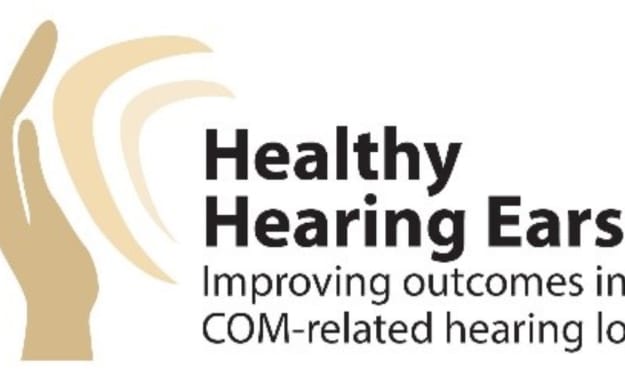7 signs that appear in the morning warn of diabetes
Some symptoms that often appear in the morning can warn of the risk of diabetes. If you experience these symptoms, you should go to the hospital for early examination.

In fact, most people don't know they have diabetes until symptoms become really obvious and they're diagnosed by a doctor.
Below are 7 signs that appear in the morning that can warn of this disease.
A common symptom of diabetes is excessive thirst, medically known as polydipsia.
Why are people with diabetes thirsty?
Your kidneys need to make more urine to help get the extra sugar out of your body. You may need to urinate more often and in larger amounts. Water is even pulled from your tissues to help get rid of the extra sugar. Because you are losing so much water, you may feel very thirsty.

As mentioned, because the kidneys have to work harder to remove sugar from the blood, you will urinate more often. People with diabetes urinate more often in the morning and at night.
However, frequent urination can also be caused by other underlying conditions such as pregnancy, overactive bladder, anxiety, urinary tract infections. Therefore, to assess whether frequent urination is due to diabetes, we need to consider other symptoms.
Diabetes and fatigue have a two-way relationship. There are many reasons why diabetes leads to fatigue. The leading cause is fluctuations in blood sugar levels.
When blood sugar levels are too high, the body cannot process glucose into energy; therefore, fatigue or exhaustion may occur.
Furthermore, people with diabetes often urinate a lot at night. This causes the body to become dehydrated and disrupts sleep. These factors all make the body tired and lose energy.

4. Headache
A headache in the morning can warn of diabetes. This can happen due to hormonal imbalance, blood sugar levels and the body's response to insulin.
People with diabetes may experience headaches due to:
- Hyperglycemia (high blood sugar)
- Hypoglycemia (low blood sugar)
- Hypertension (high blood pressure)
- Obstructive sleep apnea (OSA)
Dry mouth in the morning is a lack of saliva in the mouth. This can be a visible symptom of diabetes.
People with diabetes often have dry mouth due to high blood sugar levels as well as dehydration due to frequent urination.
6. Increased hunger
Increased hunger is a normal response to situations like fasting or intense exercise. But intense, insatiable hunger like bulimia is often a sign of a medical condition that requires medical treatment, such as diabetes.
This increased hunger, known as hyperphagia, occurs because the body's cells are not getting enough glucose due to insulin resistance or insulin deficiency. As a result, the brain signals the body to eat more in an attempt to provide the energy it needs.

7. Tingling or numbness in the limbs
Tingling or numbness in your hands or feet in the morning can be an early sign of diabetic neuropathy, a condition caused by chronically high blood sugar levels that damage nerves. This symptom may be more noticeable upon waking due to prolonged pressure on certain nerves during sleep.
How to diagnose diabetes accurately?
Warning symptoms may indicate that you have diabetes, but to accurately diagnose the disease, the patient needs to perform the following tests:
- A1C test : An A1C level of 6.5% or higher on two separate tests means you have diabetes. An A1C reading of 5.7% to 6.4% means you have prediabetes. Below 5.7% is considered normal.
- Random blood sugar test : a blood sample will be taken at a random time. A blood sugar level of 200 milligrams per deciliter (mg/dL) - 11.1 millimoles per liter (mmol/L) - or higher suggests diabetes.
- Fasting blood sugar test : a blood sample is taken after you have not eaten anything the night before. A fasting blood sugar level below 100 mg/dL (5.6 mmol/L) is normal. A fasting blood sugar level between 100 and 125 mg/dL (5.6 and 6.9 mmol/L) is considered prediabetes. If the result is 126 mg/dL (7 mmol/L) or higher on two separate tests, you have diabetes.
- Glucose tolerance test : for this test, you fast overnight. Then, fasting blood sugar is measured. You then drink a sugary liquid and your blood sugar will be checked regularly over the next two hours.
Blood sugar levels below 140 mg/dL (7.8 mmol/L) are normal. A result above 200 mg/dL (11.1 mmol/L) after two hours means you have diabetes. A reading between 140 and 199 mg/dL (7.8 mmol/L and 11.0 mmol/L) means you have prediabetes.
How to manage morning symptoms
When you see the above symptoms, you should have good management to control diabetes. A few suggestions below will help you control your blood sugar and improve your symptoms:
- Build a healthy diet : you should follow a balanced diet that includes foods rich in fiber, lean protein and healthy fats. Avoid sugary foods and drinks that can increase blood sugar levels.
- Drink enough water : you should provide enough water for your body throughout the day.
- Exercise : Engage in regular physical activity to help regulate blood sugar levels and improve overall health. People with diabetes should engage in exercises such as cycling, swimming, walking - avoid high-intensity activities and heavy lifting.
- Get enough sleep : Make sure you get enough sleep and maintain a regular sleep schedule. Poor sleep can affect your blood sugar levels and overall health.
About the Creator
Ken aquariums
Telling stories my heart needs to tell <3 life is a journey, not a competition
If you like what you read, feel free to leave a tip,I would love some feedback
https://sites.google.com/view/hk-decor/trang-ch%E1%BB%A7
Enjoyed the story? Support the Creator.
Subscribe for free to receive all their stories in your feed. You could also pledge your support or give them a one-off tip, letting them know you appreciate their work.






Comments
There are no comments for this story
Be the first to respond and start the conversation.